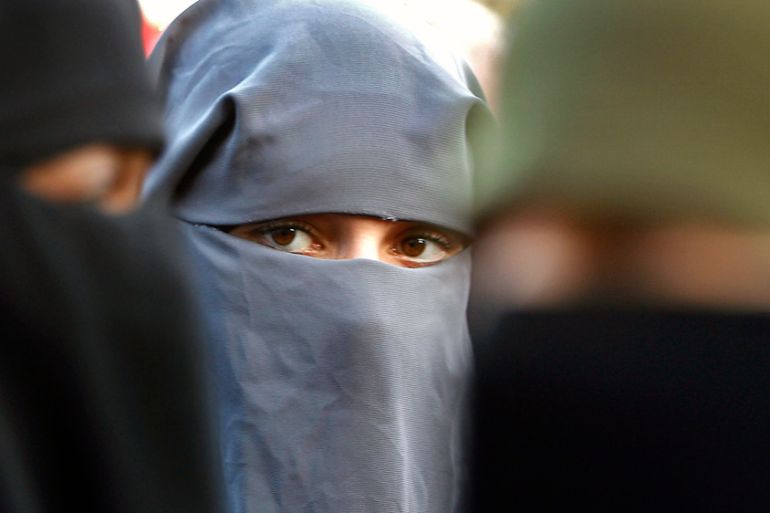Dutch politicians debate ban on Muslim headwear
Bill set to pass in parliament outlawing face coverings in government buildings and health and education settings.

Dutch politicians on Wednesday debated a limited ban on face-covering headwear worn by some Muslim women that would outlaw veils in places such as schools, hospitals and on public transportation.
Only a few hundred Muslim women in the Netherlands wear concealing full-face coverings, but successive governments have still sought to ban the garments, following the example of other European countries such as France and Belgium.
Keep reading
list of 4 itemsMuslim pupil loses UK court bid over Michaela school prayer rituals ban
Photos: Sikhs celebrate harvest festival of Baisakhi, marking new year
Masses gather for Eid celebrations in India
Interior Minister Ronald Plasterk said the Dutch proposal did not go as far as the complete bans in those countries. He called the legislation “religion-neutral”, but conceded the debate about people wearing veils on Dutch streets had played a major role in the proposal.
|
|
Plasterk said in a free country such as the Netherlands people should be allowed to appear in public with their faces covered, if they want to, but in government buildings and in health and education settings – such as hospitals and schools – people need to be able to look each other in the face.
It was not immediately clear when politicians would vote on the issue. If the legislation passes parliament’s lower house as expected, it must also be approved by the Senate before becoming law.
A small group of people wearing full-face veils watched the debate from the public gallery.
Independent politician Jacques Monasch called the veil “a symbol of oppression of women” and objected to the presence of face-covered spectators in the gallery.
One opponent of the legislation, Fatma Koser Kaya of the centrist D66 party, said the law was unnecessary because many institutions in the Netherlands already have independent authority to stop women wearing veils and headscarves in certain situations.
“What are we banning today?” she asked. “This is symbolic lawmaking … because, in practice, it already happens.”
|
|